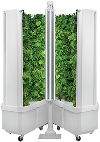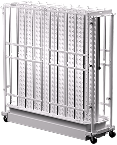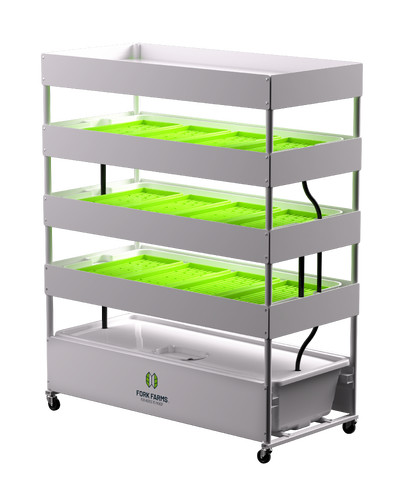Why Hydroponic Farming is a Good Idea for Nonprofits
Nonprofit organizations often have a mission to improve the quality of life for the people they serve, whether that’s by providing food, education, or other resources. When it comes to addressing food insecurity, hydroponics offers several advantages that can make it an attractive option for nonprofits.
BENEFITS OF HYDROPONIC FARMING IN A NONPROFIT SETTING
Nonprofits can benefit from growing food with hydroponics in many ways. Hydroponic farms are efficient, cost-effective, and allow for year-round production of fresh produce. They can be set up in most indoor spaces and provide educational opportunities for communities. This means that nonprofits can grow fresh produce in areas where traditional farming methods may not be possible. This can also provide opportunities to reach people in the community who might not otherwise have been exposed to farming methods. Indoor farming education programs give communities the chance to learn about sustainable agriculture practices.
By utilizing hydroponic farming, nonprofits can improve the quality of produce they provide to their community in a way that is more sustainable and engaging for all those involved. Below we take a deeper look at the largest hydroponic nonprofit farm and how they are using hydroponics to positively impact their community.
A CASE STUDY FOR NONPROFIT HYDROPONIC FARMING
Grow it Forward is a Wisconsin nonprofit on a mission to provide people in need with dignified access to good food and opportunities to grow, cook, share, and advocate for it. They established an indoor hydroponic farm, Mission Greens, as part of this mission. For most of 2022, Mission Greens consisted of 27 Flex Farms with the capacity to produce over 100 pounds of lettuce a week and various herbs. In November, they expanded their operation to a total of 51 Flex Farms – now the largest nonprofit Flex Farm operation in the world.
The fresh food grown from their Flex Farms goes to good work in several different places. Produce is used in their Monday night community meals and is bagged and distributed to their pantry clients. They also donate lettuce to partner food pantries such as the First Presbyterian Church. Grow It Forward sells the produce to local restaurants and uses it in their Harmony Cafe meals. During the winter months, they sell leafy greens and herbs at the Manitowoc Winter Farmers Market – infusing their community with fresh greens in the snowy midwest winter.
Grow It Forward is a pioneer in nonprofit indoor hydroponic farming and continues to seek new ways to serve their local community. Not only do they ensure hundreds of people have access to fresh food, but they are also educating their volunteers and staff about how to be a hydroponic farmer.
Author: Megan Pirelli, Brand Content Director
Published: 2023
Is the Flex Farm right for you?
Connect with an expert member of our team and let’s work together to bring your growing experience to life.
Important Links:
























